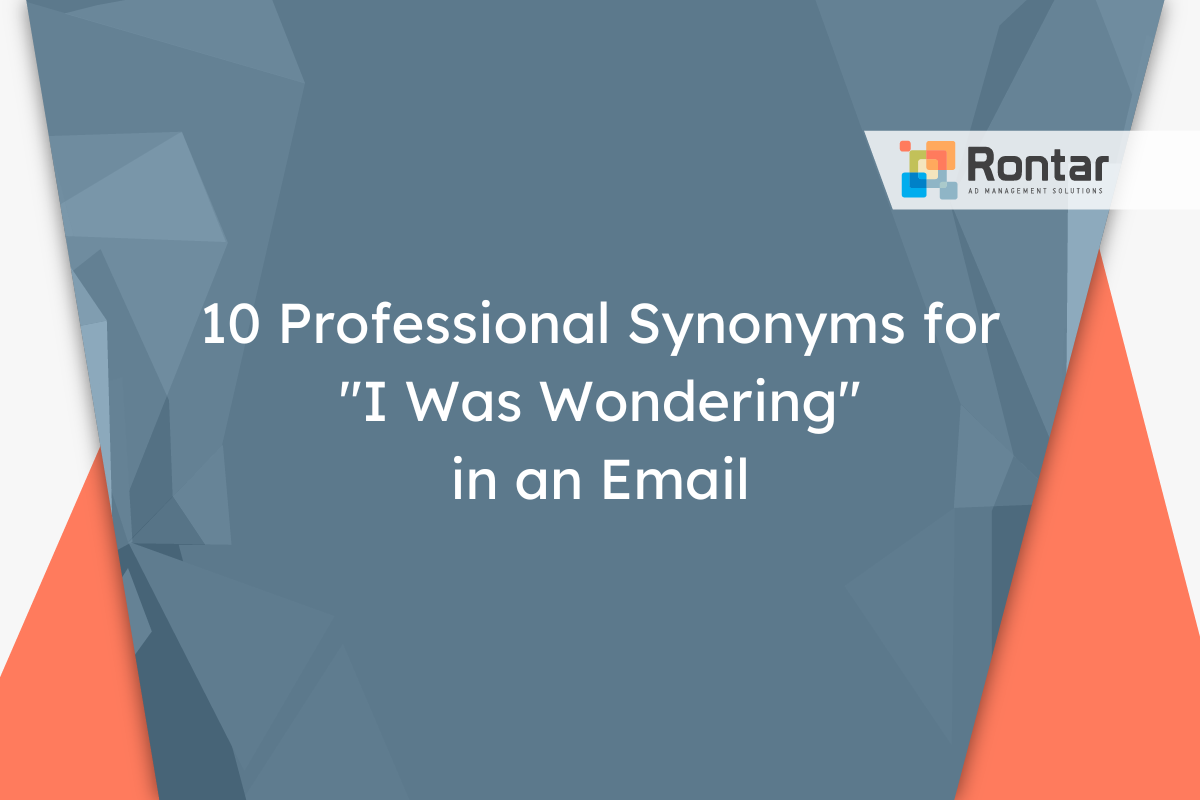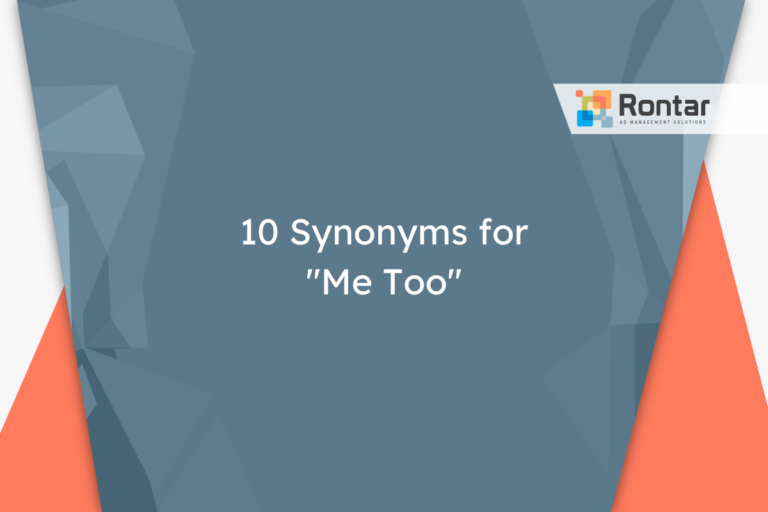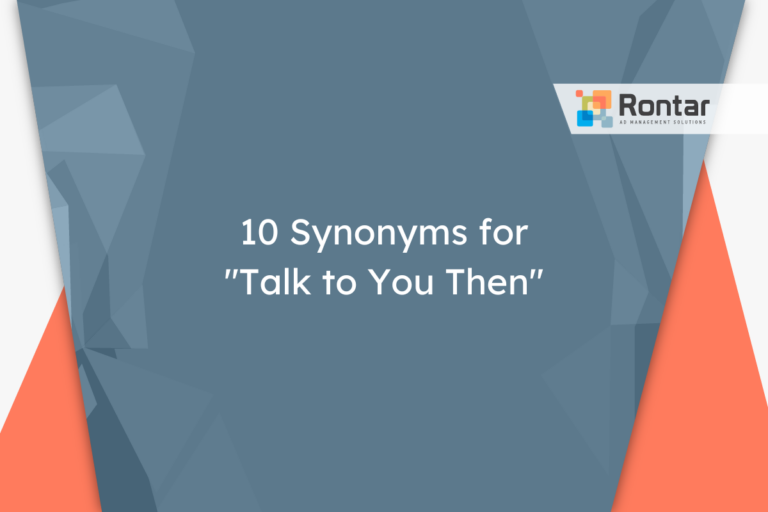10 Professional Synonyms for “I Was Wondering” in an Email

When writing professional emails, it’s important to communicate clearly and politely. Sometimes, though, phrases like “I was wondering” can feel too casual or uncertain.
This article offers ten alternative phrases that maintain professionalism and respect in your messages. Each alternative is explained with examples and situations where they fit best.
Is It Professional to Say “I Was Wondering”?
Whether or not it is professional to say “I was wondering” in an email depends on the context and the tone of the message. Generally, this phrase is seen as formal enough for most professional settings. However, its appropriateness can vary based on the situation. In environments where clarity and directness are prioritized, this phrase might be too vague or passive. It’s best used in circumstances where you want to make a request or seek information without appearing too demanding.
Here’s an example of how “I was wondering” can be used in a professional email:
Dear Mr. Thompson, I was wondering if you could provide me with the latest sales report. I need it to complete the quarterly financial analysis. Thank you for your attention to this matter. Warm regards, Emily Parkinson
Now, let’s examine the pros and cons of using this phrase.
Pros:
- Makes your request appear less direct, which can be perceived as polite.
- Softens the tone of your enquiry, making it more friendly.
- Useful in situations where you want to express curiosity without sounding demanding.
Cons:
- Can be seen as vague or indecisive, especially in situations that call for directness.
- May diminish the sense of urgency of your request.
- Could be considered overly passive in a professional setting, depending on the company culture.
In some cases, a person might want to use an alternative phrase to “I was wondering”. This could be because they want their email to sound more confident or direct. Alternatives might also be used to better match the tone of a specific working environment or to make a request seem more urgent. When looking for synonyms, it’s essential to consider the email’s overall tone and how you want your message to be received.
10 Other Ways to Say “I Was Wondering” in an Email
Looking for a different way to phrase “I was wondering” in your emails? Here are ten professional alternatives:
- I would like to know
- Could you tell me
- May I ask
- Can you tell me
- Would you mind
- Do you mind telling me
- I am curious
- If I may ask
- I’ve been meaning to ask
- Out of curiosity
1. I would like to know
This alternative is more direct and professional compared to “I was wondering.” It clearly states the sender’s intention without sounding evasive. It leans more towards a formal tone, making it suitable for professional emails where clarity is valued. This phrase can set a respectful yet assertive tone for the message.
When you need information straightforwardly without implying curiosity or uncertainty, this alternative is better suited. It works well in situations where timeliness and clarity of your request are critical.
Email example:
Dear Mr. Allen, I would like to know the deadline for the submission of the annual report. Warm regards, Susan Carter
2. Could you tell me
This phrase is both polite and professional, making it a great synonym for “I was wondering.” It implies a request for information in a courteous manner. Although it’s a question, it doesn’t come off as too casual or informal, striking a good balance between being approachable and professional.
When you’re making inquiries but want to ensure the tone remains gentle and respectful, this alternative is better suited. It’s especially useful when you’re asking for something that might require effort on the recipient’s part.
Example:
Hello Susan, Could you tell me where I can find the updated client contact list? Best, Jake Morgan
3. May I ask
This phrase is a polite and formal way of seeking information, suitable for professional settings. It shows respect for the recipient’s time and discretion, making it a tactful alternative. Using “may” instead of “can” elevates the formality of your message.
This alternative is better suited for situations where you need to ask sensitive questions or when you’re not sure how the recipient will react to your query. It adds a level of politeness that can help soften the request.
Email example:
Dear Ms. Hughes, May I ask for your input on the new project proposal? Kind regards, Leonard Walsh
4. Can you tell me
Similar to “Could you tell me,” this phrase is polite but slightly less formal. It’s straightforward and clear, making it an effective way to request information in a professional email. However, it carries a more casual tone, which might be suitable for less formal workplace cultures.
This alternative is better suited when you’re in a more relaxed professional environment or have an established rapport with the email recipient. It’s direct but keeps the conversation friendly.
Email sample:
Hi Marco, Can you tell me when you'll be available for a meeting next week? Cheers, Emily Thomas
5. Would you mind
This synonym adds a layer of politeness by framing your request as a question. It’s a soft, indirect way of asking for information, which can be particularly professional and effective in formal emails. It suggests that you’re considerate of the recipient’s willingness or ability to provide the information.
When seeking cooperation or a favor that might impose on the recipient, this alternative is better suited. It’s especially useful when you want to be as courteous as possible.
Email example:
Dear Dr. Patterson, Would you mind sharing your research findings with me? Sincerely, Nora Kim
6. Do you mind telling me
This phrase is very similar to “Would you mind” but with a slightly more informal touch. While still polite and considerate, it assumes a bit more familiarity between the sender and recipient. It’s good for creating a friendly yet professional tone in the message.
This alternative is better suited when you have a comfortable working relationship with the recipient and need information. It maintains respect while being a bit more straightforward.
Email sample:
Hello Janet, Do you mind telling me your thoughts on the draft I sent over? Thanks, Roger Lee
7. I am curious
Stating “I am curious” introduces a personal touch to your message, making it feel more genuine and less formal. This phrase conveys a sense of genuine interest and can make the email seem more personal while remaining professional. It’s less about the ask and more about expressing your interest.
This alternative is better suited when the information you’re seeking is not critical but more about understanding or learning. It’s great for informal inquiries where you’re showing interest in someone’s work or opinion.
Email example:
Hi Carl, I am curious about how you managed the project timeline so efficiently. Best wishes, Rachel Simons
8. If I may ask
This phrase implies a high level of courtesy and formality. It prefaces your question with respect and is often used to ask something more personal or delicate. Using “If I may ask” sets a thoughtful and considerate tone for the message.
This alternative is better suited when you need to inquire about something sensitive or when you’re not sure if it’s your place to ask. It shows respect for the recipient’s privacy and discretion.
Example:
Dear Mr. Green, If I may ask, could you elucidate on the reasons behind the recent policy change? Kind regards, Samantha Brown
9. I’ve been meaning to ask
This phrase suggests that you have had the question in mind for some time, adding a sense of urgency or importance without being too direct. It’s informal yet can be perceived as polite in the right context. It’s great for making your message seem less abrupt.
This alternative is better suited when you want to address something that’s been on your mind in a casual manner. It works well in less formal settings or when you’ve delayed asking something important.
Example:
Hey Alex, I've been meaning to ask, how did the client meeting go last Thursday? All the best, Marta Jennings
10. Out of curiosity
Ending our list with “Out of curiosity” brings a casual and informal tone to your inquiry. It indicates genuine interest in the subject matter without implying any pressure on the recipient to answer. This phrase is polite and effective for fostering a friendly conversation.
This alternative is better suited for casual conversations where you’re seeking information more for personal interest than professional necessity. It’s great in environments where a more laid-back communication style is encouraged.
Email example:
Hello Dylan, Out of curiosity, what was your inspiration for the new design concept? Cheers, Lisa Ray
Final Thoughts
Choosing the right way to phrase your questions in emails can make a big difference in how you’re perceived professionally. The alternatives provided give you a range of options, from formal to informal, depending on your needs and the context of your message. Experimenting with these different phrases can help you find the best fit for your communications.






